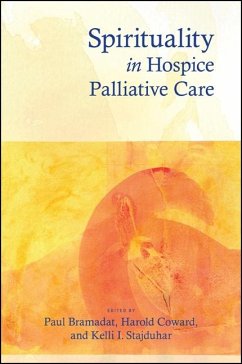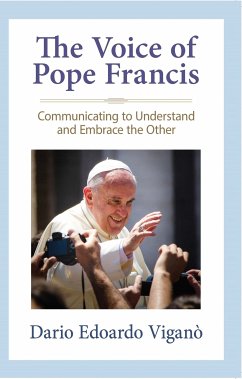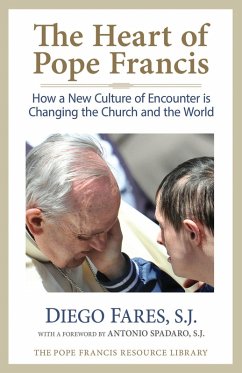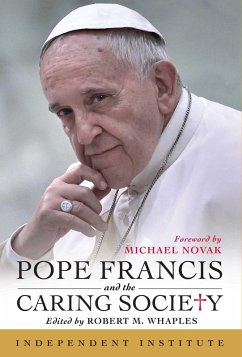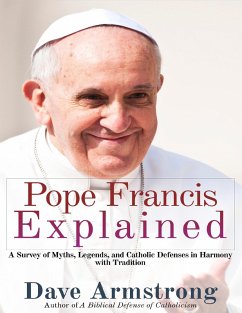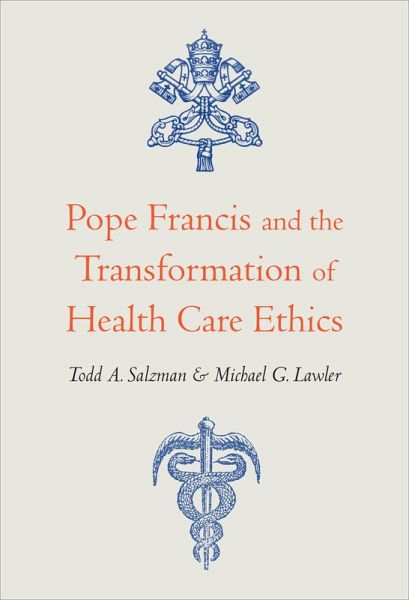
Pope Francis and the Transformation of Health Care Ethics (eBook, ePUB)
Versandkostenfrei!
Sofort per Download lieferbar
25,95 €
inkl. MwSt.
Weitere Ausgaben:

PAYBACK Punkte
13 °P sammeln!
A call to reform Catholic health care ethics, inspired by the teachings of Pope FrancisSince its first edition in 1948, the US Conference of Catholic Bishops' Ethical and Religious Directives for Catholic Health Care Services (ERD) has guided Catholic institutions in the provision of health care that reflects both the healing ministry of Jesus and the Church's understanding of human dignity. However, while the papacy of Pope Francis and the clerical sex-abuse scandal both profoundly impacted the Catholic Church, the latest edition of the ERD does not address or reflect these transformations.No...
A call to reform Catholic health care ethics, inspired by the teachings of Pope Francis
Since its first edition in 1948, the US Conference of Catholic Bishops' Ethical and Religious Directives for Catholic Health Care Services (ERD) has guided Catholic institutions in the provision of health care that reflects both the healing ministry of Jesus and the Church's understanding of human dignity. However, while the papacy of Pope Francis and the clerical sex-abuse scandal both profoundly impacted the Catholic Church, the latest edition of the ERD does not address or reflect these transformations.
Now for the first time, Todd A. Salzman and Michael G. Lawler present an extended critical commentary on the 2018 ERD. They argue that it is problematic in a number of ways. First, the revised ERD continues to prioritize a rule-based over a personalist-based ethical method, with an emphasis on absolute norms that proscribe specific medical acts. Further, it does not take into account Pope Francis's transforming ecclesiological, methodological, and anthropological visions, neither internally in Catholic health care institutions nor externally in collaborations between Catholic and non-Catholic health care institutions. Finally, the revised ERD provides no evidence that the bishops grasp how the clerical sex-abuse scandal and its cover-up have fundamentally undermined episcopal authority and credibility.
Salzman and Lawler propose new ways forward for US Catholic health care ethics that prioritize human dignity as their guiding principle. As there is pluralism in Catholic definitions of human dignity, there must be pluralism in the norms and directives that facilitate realizing human dignity. Pope Francis's emphasis on the virtues of mercy and care should move the ERD forward from a focus on absolute norms in medical ethics to a focus on virtues and principles to guide both patients and health care professionals in their discerned conscientious health care decisions.
Since its first edition in 1948, the US Conference of Catholic Bishops' Ethical and Religious Directives for Catholic Health Care Services (ERD) has guided Catholic institutions in the provision of health care that reflects both the healing ministry of Jesus and the Church's understanding of human dignity. However, while the papacy of Pope Francis and the clerical sex-abuse scandal both profoundly impacted the Catholic Church, the latest edition of the ERD does not address or reflect these transformations.
Now for the first time, Todd A. Salzman and Michael G. Lawler present an extended critical commentary on the 2018 ERD. They argue that it is problematic in a number of ways. First, the revised ERD continues to prioritize a rule-based over a personalist-based ethical method, with an emphasis on absolute norms that proscribe specific medical acts. Further, it does not take into account Pope Francis's transforming ecclesiological, methodological, and anthropological visions, neither internally in Catholic health care institutions nor externally in collaborations between Catholic and non-Catholic health care institutions. Finally, the revised ERD provides no evidence that the bishops grasp how the clerical sex-abuse scandal and its cover-up have fundamentally undermined episcopal authority and credibility.
Salzman and Lawler propose new ways forward for US Catholic health care ethics that prioritize human dignity as their guiding principle. As there is pluralism in Catholic definitions of human dignity, there must be pluralism in the norms and directives that facilitate realizing human dignity. Pope Francis's emphasis on the virtues of mercy and care should move the ERD forward from a focus on absolute norms in medical ethics to a focus on virtues and principles to guide both patients and health care professionals in their discerned conscientious health care decisions.
Dieser Download kann aus rechtlichen Gründen nur mit Rechnungsadresse in A, D ausgeliefert werden.






